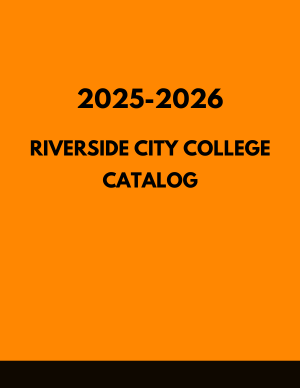College Catalog
Welcome to the RCC Catalog
Explore Riverside City College’s most recent College Catalog, your go-to resource for academic programs, degree requirements, and course descriptions. Below, you'll find the latest catalog along with an archive of past editions for reference.
Looking for current course offerings? Our RCC Class Schedule provides a complete list of AVAILABLE OPEN CLASSES for Fall, Winter, Spring, and Summer terms.


